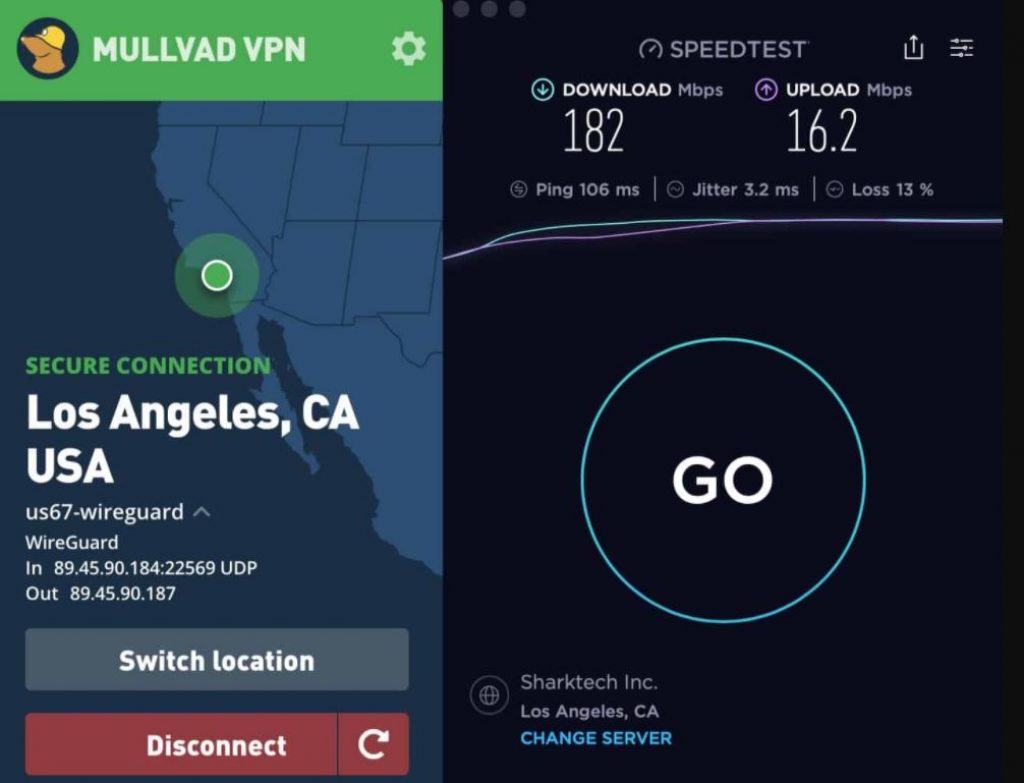

I wasn't able to get mullvad's multihop to work on Android, but iVPN Pro does the trick. also generates a random userid and also accepts cash in the mail (only for large purchases unfortunately). I remember that the admin grows cannabis in his basement (still illegal in Germany) and provides all users with access to warez via Usenet NNTP. :)Įdit: ovpn.to is probably worth taking a look too. But this is probably still better than LE just having to call comcast. Don't just rely on a single hoster which just shifts the liability from your ISP to another single point of failure. Always use VPN chains with multiple locations and always keep in mind that your VPN could have been compromised. * Also, I believe that this kind of pwnage could've happened to every VPN provider. However, there are still articles about how they've been raided multiple times in the past, and the police never found any logs. Happened via the management interface.īut please take this information with a grain of salt, as the write up for this exploitation has been vanished from the internet (or I am just unable to find it). Someone hacked into their Malmoe server a year ago or so, and found that they indeed run everything in RAM disks and aren't logging at all. Perfect-Privacy still has integrity left. That's basically all they have going for them. PIA is cheap, and they don't seem to keep traffic logs.

I've never had an opportunity to test it but I'd expect Mullvad to be more reliable in China than PIA.

Mullvad also supports bridge servers for shadowsocks.

People shilling Mullvad are probably doing so because it has many technical advantages over traditional VPNs used by more casual customers. If I knew how much better it was originally I never would have went for the cheaper more popular option of PIA. Even though I only picked Mullvad because it was recommended on HN and wasn't PIA, I much prefer it from a technical standpoint. I used to use PIA before the owner hired con artist Mark Karpeles as the CTO and jumped ship when that happened. You have the flexibility to configure your client in whatever way you want without having to deal with proprietary endpoints to request a temporary forwarded port for the connection like what PIA makes you use. You can have multiple interfaces going to different applications if you wanted. It's very convenient if you want a P2P tunnel where you can get a wireguard interface on the client and then configure your P2P application to only use that tunnel so that there's no chance of leaks (Up to you if you want to also configure the P2P service to use DNS over the VPN or just the system resolver if you don't care) and you don't have to tunnel everything over the same VPN. You can associate multiple ports to your tunnel or separate tunnels for inbound connections. You can build tunnels to whatever endpoint in whichever country you want. Mullvad gives you more flexibility than PIA in that regard and doesn't limit you to whatever features are built into the client like PIA does. >all the people who shill Mullvad over everything probably just use them for web-browsing or adjacent activities, and not anything that requires a specialty product like p2p or bypassing national firewalls. I understand the skepticism about the ability to scale Bitcoin after the Bitcoin Core team has been pushing for years for keeping block sizes low, but please let's consider facts rationally and maintain a civil discussion. Check out if you want to read about the technical feasibility of this (even with today's hardware, it will be even easier in the future). The scalability roadmap aims for eventually supporting 50 daily transactions for each human in the planet, again keeping fees low, which is key for Bitcoin to be used as cash. Scalability tests are underway to detect bottlenecks for increasing the block size further, which should take it closer to Visa's transaction capacity. Bitcoin Cash does currently scale up to Paypal's daily number of transactions while keeping transaction fees below $0.01.


 0 kommentar(er)
0 kommentar(er)
